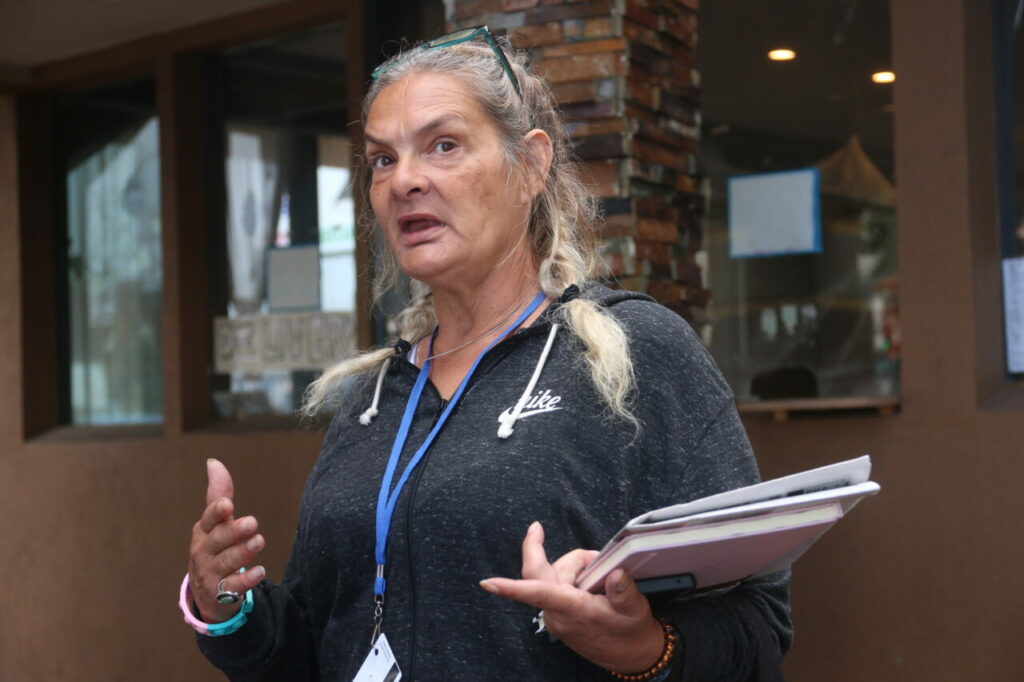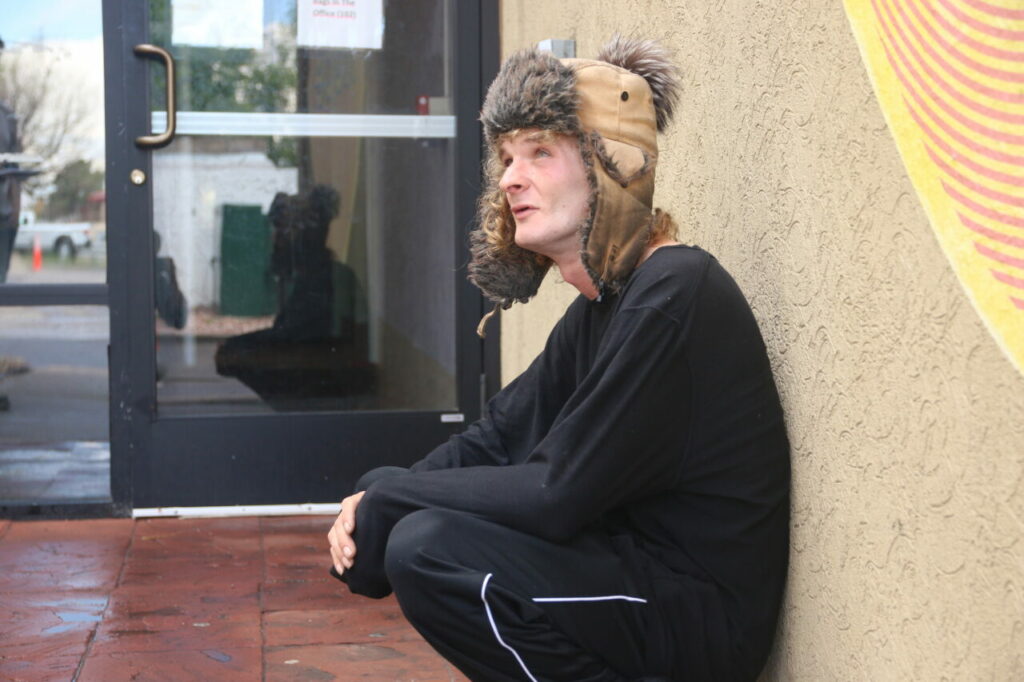Denver to Close Only Non-Congregate Shelter Exclusively for LGBTQ+ Guests in August; Residents Have Concerns
54 0
By Gannon Rothman
Angela Browne’s concerns about the possibility of being houseless again soared when she first heard that the Rodeway Inn, 4765 Federal Blvd., would be up for lease in a few months.
She’s been a resident there since last year. Now she and other guests wonder where they will go when they’re forced to move out on Aug. 24.
The city leased the building from the Denver Housing Authority (DHA) for nearly $11 million during the COVID-19 pandemic to expand non-congregate shelters, where individuals are offered some level of privacy and their own rooms.
“We’re concerned because we wanted this developed into something north Denver could be proud of, something where our elderly, our nonbinary, our transgenders, our ADA people that have service animals that are harder to place within our community,” Browne said. “North Denver is our home.”
The structure has served as a non-congregate shelter for women, transgender and nonbinary guests since the summer of 2020. The shelter will effectively close at the end of the current lease term on Aug. 31. The city said a reason behind the decision comes from ownership.
 Angela Browne, a resident of the Rodeway Inn, speaks to reporters about the impending closure of the living facility at 47th Avenue and Federal Boulevard, which has been a shelter for LGBTQ+ individuals since the start of the COVID-19 pandemic. Photo by Eric Heinz
Angela Browne, a resident of the Rodeway Inn, speaks to reporters about the impending closure of the living facility at 47th Avenue and Federal Boulevard, which has been a shelter for LGBTQ+ individuals since the start of the COVID-19 pandemic. Photo by Eric Heinz
Denver doesn’t own the Rodeway Inn and does not control the terms of the lease. This isn’t the first time a shelter has been forced to shut down in Denver since the pandemic started. Last year, at least 150 guests were forced to move out of the Quality Inn on Zuni Street that opened to serve people experiencing homelessness during COVID.
Federal funds drying up caused that shelter to close. Moving forward, Denver is considering plans to repurpose the site at Rodeway Inn to provide more permanent supportive housing. The Denver Department of Housing Stability and other partners, including the nonprofit organization that operates the hotel, The Gathering Place, are working together to determine the most viable option for transitioning guests prior to the closure.
Megan Devenport, CEO of The Gathering Place, said her immediate concern is for the people who are most affected. That includes getting more than 70 guests into stable housing quickly.
“Currently, Denver hasn’t prioritized the specific support for women, trans and nonbinary people in this next phase of non-congregate shelter,” Devenport said. “They’re instead defaulting to an all-gender approach, which is an approach. But I’m really concerned about the message that sends to our trans and nonbinary community.”
More than 30 people will also lose their jobs with The Gathering Place, which has helped support guests at the Rodeway during its 24/7 operation. Devenport said some of the things the city is still able to do include funneling more funds to their nonprofit for rental assistance and helping with move-outs for residents.
Right now, the Rodeway Inn is the last non-congregate shelter that specifically serves the LGBTQ+ homeless population in Denver. The issue facing this specific community of people going to other shelters is the feeling of being unwelcome. Studies show that transgender and nonbinary people are more at risk for homelessness.
 One resident of the Rodeway Inn told The Denver North Star they are better off in a housing situation than fending for themselves on the streets. Photo by Eric Heinz
One resident of the Rodeway Inn told The Denver North Star they are better off in a housing situation than fending for themselves on the streets. Photo by Eric Heinz
For now, the city has over $23 million to purchase non-congregate shelters. It hasn’t said what specific populations those will serve. Devenport said a positive outcome of the Roadway Inn closure would be to lead guests to other shelters or toward better housing options.
Angie Nelson, the deputy director of Housing Stability and Homelessness Resolution at the Department of Housing Stability, wants to remind current LGBTQ+ residents that the Rodeway Inn is not the only shelter that accepts trans and nonbinary people.
“We want to encourage every guest to work with the case management team at the Rodeway to work on their individual transition plan, which may look like a referral to another non-congregate shelter that can serve trans and nonbinary folks,” Nelson said.
Currently, Denver has nine other non-congregate shelters and shelter alternatives where residents are encouraged to go once the Rodeway Inn shuts down, despite the feeling that some LGBTQ+ people experiencing homelessness lack the support at other nonspecific shelters where they feel more vulnerable.
The Gathering Place is working with other partners including Colorado Village Collaborative, which has a tiny home village specifically to house women, transgender and nonbinary individuals. That village has recently been accepting new residents with three applicants per week.
Denver said the Salvation Army, which is the operating partner with the shelter, has started leading a collaborative effort to engage each of the sheltered guests to define a transition plan prior to the Rodeway closure.
For Browne, the shelter has been her home. But until she’s forced to leave in August, she said she wants her voice to be heard and wishes for more support for the LGBTQ+ homeless community in North Denver.
Link to original article